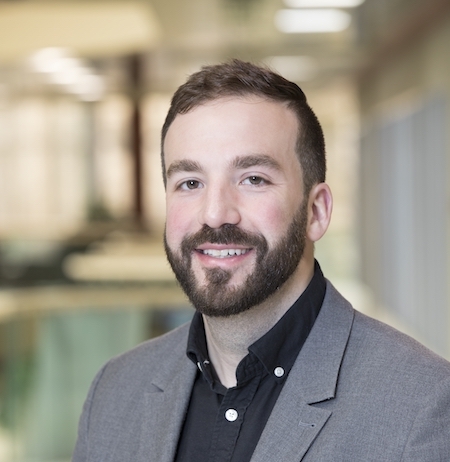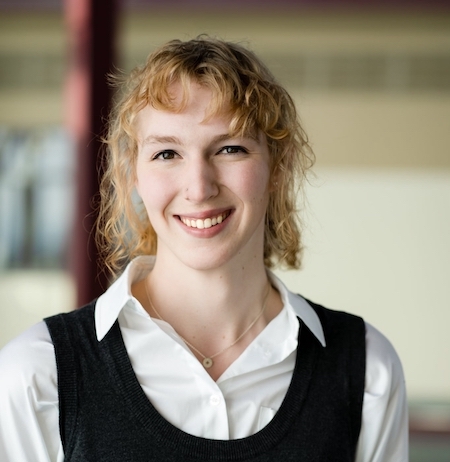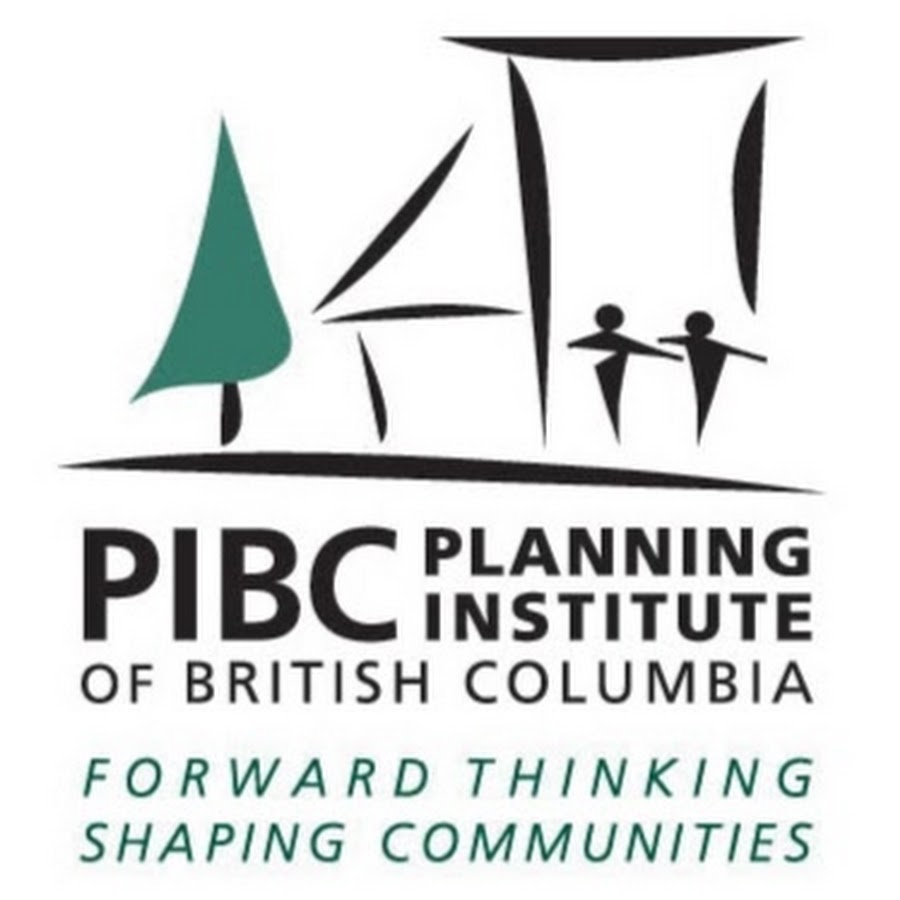Scroll down for current highlights on the range of work and interests of featured faculty and students at UNBC School of Planning and Sustainability. For more information about UNBC, its planning program, students & faculty, visit www.unbc.ca/school-planning-and-sustainability.

What makes you passionate about planning?
What makes me passionate about planning is its potential to be a positive force for good. As a profession, planning helps to shape the physical, social, and economic fabric of communities—and influences how people live, move, connect, and find belonging within them.
Planners have a front row seat in building more equitable and livable communities, while also being responsible stewards of both natural and financial resources. Few professions carry this level of responsibility, and to me, that’s both exciting and deeply meaningful.
Tell us about a project you are working on and why it excites you.
My research program continues to be a source of personal and professional excitement. While I have many ‘planning interests’, my research tends to centre around how growth pressures and development patterns materialize in mid-sized Canadian cities, with particular attention to the state and function of the downtown.
For all the talk about the consequences of urban sprawl, it continues to be the predominant growth model in Canada. As a result, downtowns throughout the country have experienced periods of stagnation and decline. My work explores how we can reverse this trend and restore downtowns as the social, economic, and cultural hub of the community. I view the health and well-being of the heart of our cities as a critical issue, which despite concentrated attention over many decades, has continued to be a persistent problem for planners.
What makes this research especially exciting right now is how relevant it is to public discourse. Communities of all sizes across Canada are grappling with numerous downtown challenges and much thought is being given to how to support their evolution. As a researcher, I’m motivated to contribute to that conversation—not only through scholarship, but by finding ways to translate research into practice.
What do you think the most important challenge will be for planners in the future?
Planners today face a number of persistent and increasingly complex challenges—including climate change, a growing infrastructure deficit, and an ongoing affordability crisis. While planners have long been at the forefront of addressing these issues, they must now do so in a context marked by rising public distrust in institutions and constrained fiscal resources.
The most important challenge for planners in the future will be navigating these intersecting pressures while continuing to push forward in building healthier, more vibrant, and inclusive communities.
What are you most excited about at your planning school?
UNBC has long offered a well-regarded and well-rounded undergraduate degree in planning, with alumni making meaningful contributions in communities across Canada. I'm most excited to see how the program, supported by dedicated faculty, staff, and engaged students, will continue to build upon that foundation.
In recent years, we’ve worked collaboratively to evolve the program to meet today’s challenges while staying true to its roots. A key milestone has been the development of a new physical space on campus (i.e., “The Planning Studio”) which supports our rollout of more studio-based courses. These courses connect students with community members and organizations to tackle real-world planning issues in Prince George and the broader North. It’s exciting to see students immerse themselves in this work and to learn by doing, while building meaningful connections with community.
At the same time, our faculty continue to do impactful research in their fields, and the Student Planning Association is actively expanding its reach, enhancing both social engagement and professional development opportunities for students.
There’s a real sense of momentum within the program. I’m excited to see how it continues to grow and further establish itself as one of Canada’s leading planning schools.
Please tell us about a place or plan that has been influential to you.
I’ve had the opportunity and privilege to live in four provinces and travel extensively across Canada—only Nunavut and Newfoundland and Labrador remain on my list! These experiences, both as a resident and a traveller, have shaped how I see the world. Each place I’ve called home has offered new insights, that have strengthened my adoration for cities.
One place that’s been especially influential is Regina—Saskatchewan’s capital city and my hometown. Rising out of the vast Prairie landscape, to me, Regina is emblematic of the transformational role that planners play. What was once windswept grassland is now a vibrant city, home to a lush urban forest of over half a million trees and Wascana Centre, one of North America’s largest urban parks (larger even than Stanley Park or Central Park).
Regina’s built environment also reflects broader planning movements from different eras, including the City Beautiful movement, suburbanization, and urban renewal. As I began to take an interest in these topics in my earlier years, Regina was the context that nurtured my understanding of how planning ideas materialize on the built environment, and ultimately influenced me to pursue planning as a career.
As I picked up and relocated to other Canadian cities including Saskatoon, Kitchener-Waterloo, Calgary, Vancouver, and Prince George, my understanding of cities continued to evolve, notably that each place is unique, with its own set of challenges, and the need for contextually sensitive solutions. What works for one place, may not work for another!
For these reasons, I often encourage students to live or spend time outside their hometowns if they can. There’s no substitute for what can be learned by experiencing new places firsthand.

What makes you passionate about planning?
I see planning as a gateway to a world of potential; it is the interface between a community’s people and it’s structure. I am deeply inspired by the opportunity to support a future built on community interest. Growing up in rural northern British Columbia, I was surrounded by many small and wonderful communities but often found a dissatisfaction among residents. That dissatisfaction is especially seen in the trend of youth abandoning these small towns in favour of larger centres in the south. There is often economic instability as old industries shift and falter, and unnecessary divisions between communities. It is my goal in my career to work to support these communities and to ensure voices are being heard. By building connections between communities, governments, and organizations I hope to see a thriving north young people are not only content to stay in, but happy and comfortable. As a person, the north is my home. As a planner, the north represents an unending source of opportunities, and a community in need of support.
Tell us about a project you are working on and why it excites you.
I recently completed phase one of a project for the Regional District of Bulkley-Nechako (RDBN) investigating the location of the historical Dominion Telegraph Line to the Yukon. Neighbouring regional districts have done the same for their portions of the trail, however, the RDBN did not have this data. Through in-depth research and mapping, I was able to identify options for how this historic trail can be of benefit to the communities the line passes through. The RDBN is a large region, and being able to look at potential opportunities for such a range of locations was rewarding in and of itself. It was fascinating to uncover this important piece of history and gain a deeper understanding of how it majorly influenced development of the region. While I will not be part of the next phases of the project, I am excited to see where the RDBN takes it and the projects that spawn from my work. I hope to see more people have the opportunity to learn about this great infrastructural project that shaped their homes as information becomes more accessible.
What do you think the most important challenge will be for planners in the future?
In recent years we have seen a growing distrust in all levels of government. Due to this, I believe planners will need to work harder to engage with groups and take new, innovative approaches to accomplish their goals. I see co-creation style work as the future for much of planning, as it fosters a greater sense of ownership for the public and creates space for planners to engage in healthy conversations about community. Unfortunately, the increased workload from these new approaches would be difficult to manage and potentially unfeasible for many places, I hope workable solutions can be found.
What are you most excited about at your planning school?
As the end of my time as an undergraduate student grows closer, I find myself being most excited about UNBC’s capacity to adapt to current issues and produce a wide range of planners. The new course on housing, inspired by the current housing situation and recent housing legislation, is one such example of this adaptability. The planning program is structured, but it has flexibility to allow for the development of skills in key student interests that ensures every planner walks out with something unique to offer the industry. A large part of this is the school’s commitment to studio-style learning, with semester long projects requiring students to get their boots on the ground and put to practice what they’ve learned. Students in these courses learn from the professor as in any other class, but also the public, organizations, each other, and themselves. These classes are a wonderful outlet for knowledge sharing with immediate actionability of skills that is not seen elsewhere.
Please tell us about a place or plan that has been influential to you.
UNBC’s School of Planning and Sustainability has largely carved out a spot for planning students to call their own in room 8-365, affectionately referred to as “The Planning Studio”. This room, while it has its issues, has become a centre for student work and discussion. I have done my best work in that room and had some of my best conversations with peers and professors. It is as adaptable as the program itself and can support all types of activities. It is the hub for the UNBC Student Planners’ Association, where they hold regular meetings and many of their events, and is the social nexus that links every planning student to each other. This space is critical to the social and academic well-being of the planning student body. Recent work by the school to display previous years project work on the wall has brought about a greater ability for the room itself to inspire the next generation of planners.




